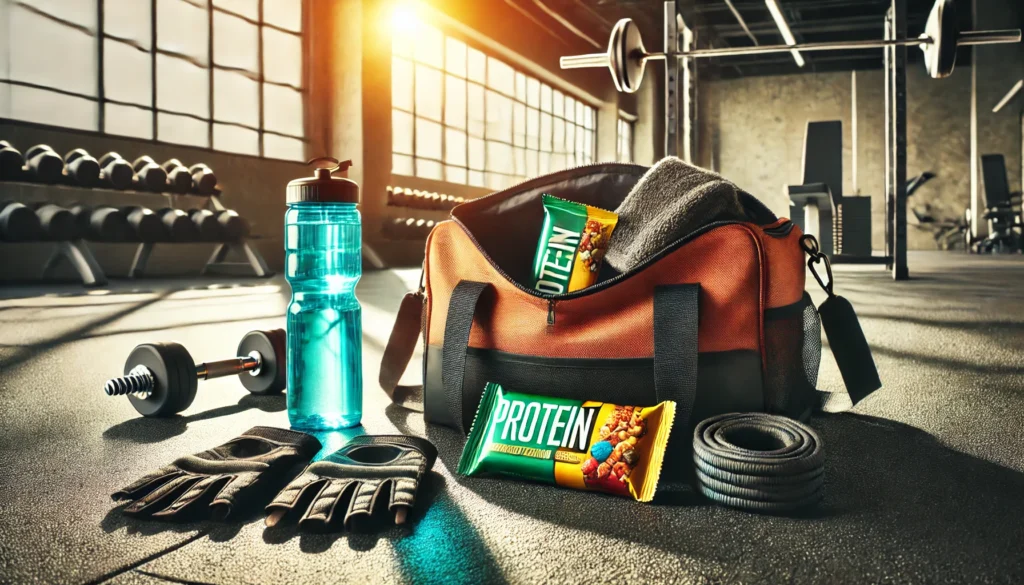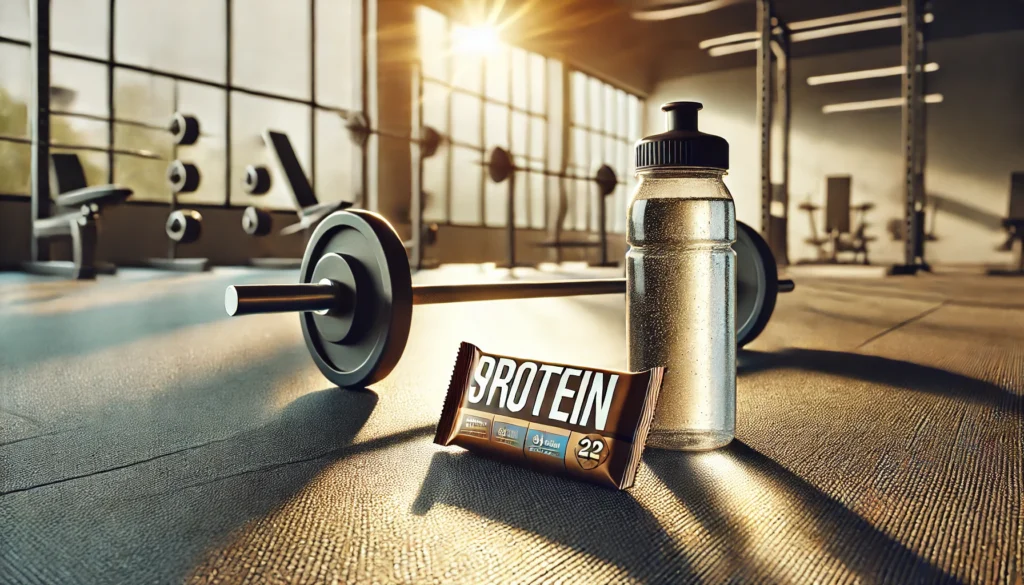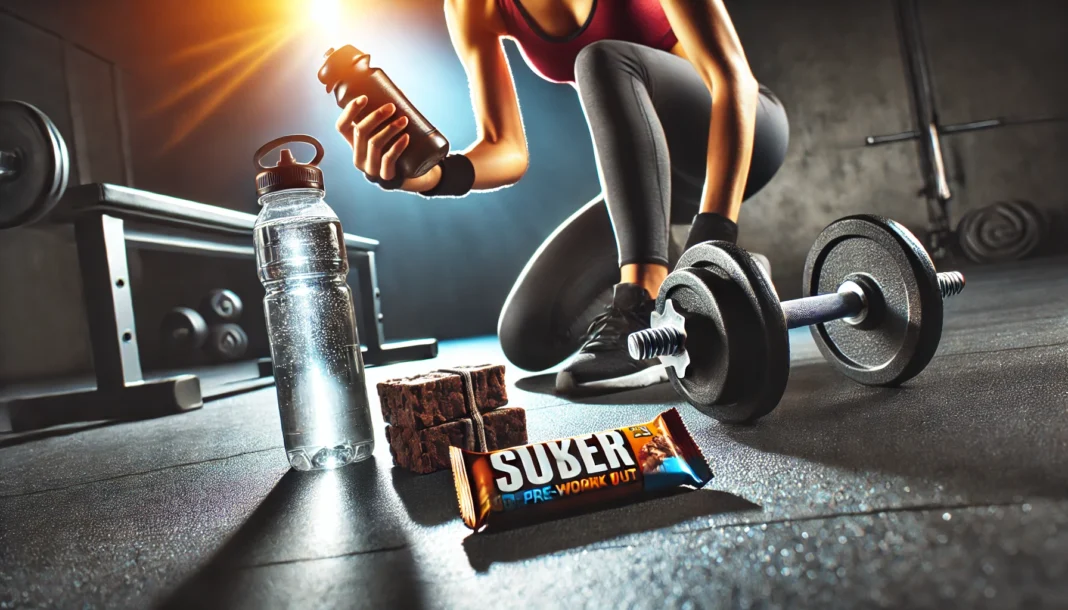Understanding the Role of Protein in Athletic Performance
Protein is one of the most essential macronutrients for athletes and fitness enthusiasts, playing a crucial role in muscle repair, recovery, and overall performance. Whether you are a beginner looking to optimize your nutrition or an experienced athlete aiming for peak performance, the timing of protein intake can make a significant difference. This brings up a common question: should you eat a protein bar before or after workout sessions? Understanding the function of protein, digestion, and muscle metabolism can help clarify this debate.
You may also like: Maximize Your Recovery: The Best Post Workout Supplement for Muscle Growth and Regeneration
Protein bars serve as a convenient and effective source of high-quality protein, often containing whey, casein, or plant-based protein to support muscle maintenance and growth. Since exercise creates microtears in muscle fibers, consuming adequate protein is necessary to repair and strengthen these tissues. However, the effectiveness of protein intake depends not only on quantity but also on timing. Many fitness experts and researchers suggest that consuming a protein bar at the right time can enhance recovery, improve muscle synthesis, and sustain energy levels during workouts.
The Science of Pre-Workout Nutrition: Should You Eat a Protein Bar Before Exercise?
For those new to fitness, pre-workout nutrition is essential in ensuring sustained energy levels, preventing muscle breakdown, and optimizing performance. A well-balanced pre-workout meal should contain carbohydrates for energy and protein for muscle support. The question remains: is a protein bar a good option before a workout, particularly for beginners?
The best pre-workout for beginners should focus on providing a steady release of energy while also supplying the body with the nutrients necessary to protect muscle tissue. Protein bars that contain a balanced combination of protein and complex carbohydrates can be an excellent choice. The carbohydrates provide quick energy, while the protein helps prevent excessive muscle breakdown during intense activity.
Pre-workout supplements for beginners often contain amino acids, creatine, and caffeine to enhance endurance and focus. However, if a beginner prefers a natural alternative, a protein bar with a moderate carbohydrate content can serve as a good beginner pre-workout option. The goal of pre-workout nutrition is to prevent fatigue, improve stamina, and maintain muscle mass, all of which a high-quality protein bar can support.
The Benefits of Consuming a Protein Bar After a Workout
Post-workout nutrition is just as critical as pre-workout fueling. Exercise, especially strength training, depletes muscle glycogen stores and causes microscopic muscle damage that requires repair. To maximize recovery, consuming a protein-rich snack after exercise can accelerate muscle protein synthesis and enhance muscle regeneration.
One of the best post-workout strategies is to consume protein within the anabolic window, a period of heightened muscle receptivity to nutrients. Research suggests that consuming a protein bar within 30 to 60 minutes post-workout can optimize recovery and muscle growth. The best pre-workout supplement for beginners may provide energy before exercise, but post-workout protein is crucial for muscle repair.
A protein bar that includes a combination of whey or plant-based protein with some carbohydrates can facilitate faster muscle recovery. The presence of amino acids in high-quality protein bars helps stimulate muscle protein synthesis, ensuring that the body effectively repairs damaged tissues and adapts to training stress.

The Best Pre-Workout for Beginners: Choosing the Right Protein Bar
Finding a good beginner pre-workout meal or supplement can be challenging, especially for those new to fitness. The best pre-workout for beginners should contain ingredients that support endurance, strength, and mental focus. Some protein bars are formulated with additional performance-enhancing nutrients such as branched-chain amino acids (BCAAs), caffeine, or electrolytes to support hydration and muscle function.
Pre-workout supplements for beginners often include beta-alanine and citrulline malate to improve blood flow and delay muscle fatigue. However, if you prefer a whole-food approach, a protein bar with a mix of natural ingredients can serve as a suitable alternative. A high-quality protein bar with oats, nuts, and whey or pea protein can sustain energy levels, making it an ideal choice for beginners looking to optimize their performance without relying on synthetic supplements.
Striking a Balance: When Should You Eat a Protein Bar Before or After Workout?
While the debate over whether to consume a protein bar before or after a workout continues, the best approach depends on individual fitness goals and training intensity. For those focusing on endurance training, eating a protein bar before a workout can help sustain energy levels. For individuals aiming for muscle hypertrophy, post-workout protein intake is essential for maximizing muscle growth and repair.
The best pre-workout supplement for beginners may enhance training sessions, but post-workout protein consumption ensures proper recovery. By strategically incorporating protein bars into your fitness routine, you can support your overall athletic recovery and regeneration while making the most of your workouts.
Frequently Asked Questions (FAQ) on Protein Bars and Workout Nutrition
1. Should you eat a protein bar before or after workout for maximum muscle growth? The timing of protein intake plays a crucial role in muscle growth, but the best approach depends on your workout intensity and dietary habits. Eating a protein bar before a workout can help maintain muscle integrity by providing amino acids that prevent catabolism, or muscle breakdown, during intense exercise. However, consuming one after a workout ensures that your muscles receive the necessary nutrients for repair and growth, maximizing protein synthesis. The key is to consider the type of protein in the bar—fast-digesting proteins like whey are more beneficial post-workout, while bars with slow-digesting casein or fiber may work better as a pre-workout snack. To optimize muscle recovery, ensure your total daily protein intake aligns with your fitness goals, as overall consumption is just as vital as timing.
2. What factors determine whether a protein bar is best consumed before or after a workout? The best time to consume a protein bar depends on several factors, including workout intensity, duration, and individual metabolic rate. If your workout is highly intense, a pre-workout protein bar can provide sustained energy and reduce muscle fatigue. On the other hand, post-workout consumption is ideal for replenishing depleted glycogen stores and initiating muscle repair. Additionally, the macronutrient composition of the bar matters—bars rich in carbohydrates work better before a workout, while those high in protein and healthy fats are more beneficial afterward. Individual preferences and digestive comfort also play a role, as some individuals may find that eating too close to exercise causes discomfort, making post-workout consumption a better option.
3. How does consuming a protein bar before a workout impact endurance athletes? For endurance athletes, consuming a protein bar before a workout can be particularly beneficial, as it provides sustained energy and helps maintain muscle integrity during prolonged exercise. Unlike strength training, endurance workouts rely heavily on glycogen stores, and a well-balanced protein bar with carbohydrates can help delay glycogen depletion. Additionally, including protein in pre-workout nutrition supports muscle preservation, reducing the risk of excessive protein breakdown during endurance training. The ideal protein bar for endurance athletes should contain a combination of carbohydrates for immediate energy and protein for prolonged muscle support. By selecting the right balance of macronutrients, endurance athletes can enhance their performance and maintain consistent energy levels throughout their workout.
4. Can a protein bar be a substitute for a full meal before or after a workout? While a protein bar is a convenient option, it should not always replace a full meal, particularly after a workout when comprehensive recovery nutrition is crucial. Whole foods offer a broader range of essential nutrients, including vitamins, minerals, and fiber, which are vital for overall health and athletic performance. However, in situations where time is limited, a high-quality protein bar can serve as an effective alternative, especially when paired with a piece of fruit or a healthy fat source. When choosing a protein bar as a meal substitute, ensure it provides an adequate balance of protein, carbohydrates, and fats to support muscle recovery and energy replenishment. Ultimately, while protein bars are a useful tool for convenience, whole food meals should remain the foundation of an athlete’s diet.

5. Are protein bars necessary if I consume a balanced diet? Protein bars are not essential if you maintain a well-balanced diet that meets your protein and energy needs. However, they offer convenience and a precise nutrient profile that can support athletic performance and recovery. For individuals with busy lifestyles or those who struggle to consume enough protein through whole foods, protein bars can be an effective supplement. They are particularly useful for post-workout recovery when consuming a full meal is not immediately possible. While whole foods should be prioritized, protein bars serve as a practical and efficient option to bridge dietary gaps and ensure adequate protein intake.
6. What are the risks of consuming protein bars too frequently? Although protein bars provide nutritional benefits, over-reliance on them can lead to unintended consequences, such as excessive sugar intake, digestive discomfort, and nutrient imbalances. Many commercially available protein bars contain added sugars or artificial sweeteners, which can contribute to blood sugar spikes or digestive issues. Additionally, replacing whole food meals with protein bars too frequently may result in inadequate intake of essential micronutrients found in natural foods. Some bars also contain sugar alcohols, which can cause bloating and gastrointestinal discomfort in sensitive individuals. To minimize risks, protein bars should be consumed in moderation as part of a varied diet that includes whole, nutrient-dense foods.
7. How does protein bar composition affect workout performance? The composition of a protein bar significantly impacts its effectiveness before or after a workout. Protein bars that contain high amounts of fast-digesting carbohydrates are ideal for pre-workout consumption as they provide quick energy. Bars with a higher protein-to-carb ratio are better suited for post-workout recovery since they promote muscle repair and replenish amino acids. Additionally, the type of protein used—whether whey, casein, or plant-based—affects digestion and muscle protein synthesis. Bars with fiber and healthy fats may be better suited for sustained energy but could slow digestion if consumed immediately before intense exercise. Selecting a protein bar based on macronutrient composition and workout goals ensures optimal performance and recovery.
8. Are protein bars beneficial for individuals following a keto diet for runners? Protein bars can be incorporated into a keto diet for runners, but they must be carefully selected to align with the diet’s low-carbohydrate requirements. Many traditional protein bars contain high levels of sugar and carbohydrates, which can disrupt ketosis. Instead, keto-friendly protein bars focus on high-quality fats, moderate protein, and minimal net carbs to sustain energy levels during runs. Since glycogen stores are limited on a keto diet, fat-adapted runners may benefit from consuming bars that contain medium-chain triglycerides (MCTs) for quick energy. Properly formulated keto-friendly protein bars can support endurance performance while maintaining ketosis and reducing reliance on carbohydrates.
9. How does a protein bar fit into a keto and running lifestyle? For individuals following keto and running regularly, protein bars should be chosen based on their macronutrient profile to avoid disrupting ketosis while providing adequate energy. Keto-friendly protein bars often contain ingredients such as coconut oil, nuts, and seeds to deliver slow-burning fuel. Unlike traditional high-carb bars, keto-friendly options provide sustained energy without causing blood sugar fluctuations. Runners on a ketogenic diet must balance protein intake to avoid gluconeogenesis, where excess protein converts to glucose, potentially affecting ketosis. Choosing the right protein bar allows keto runners to fuel effectively while adhering to their dietary requirements.
10. What should keto runners look for in a protein bar? Keto runners should prioritize protein bars with a balance of healthy fats, moderate protein, and minimal carbohydrates. Ingredients such as collagen protein, almond butter, and MCT oil provide a sustained energy source while supporting muscle recovery. Avoiding bars with hidden sugars or artificial sweeteners is crucial to maintaining ketosis and preventing energy crashes. Since keto runners rely on fat metabolism for endurance, protein bars with added electrolytes can also be beneficial in preventing dehydration and muscle cramps. By selecting bars that align with ketogenic principles, runners can optimize their performance and endurance without compromising their diet.

Conclusion: Optimizing Athletic Recovery with Protein Bars
In the ongoing debate of whether you should eat a protein bar before or after workout sessions, the answer ultimately depends on individual fitness needs. Both pre- and post-workout nutrition play vital roles in energy levels, muscle preservation, and recovery. Beginners and experienced athletes alike can benefit from incorporating protein bars into their routine, ensuring sustained performance and efficient muscle regeneration. Whether consumed before a workout for energy or after exercise for recovery, protein bars can be a valuable tool in achieving athletic goals and enhancing overall well-being.
protein bars, pre-workout nutrition, post-workout recovery, best protein bars, athletic performance, workout supplements, muscle recovery, fitness nutrition, pre-workout for beginners, best pre-workout for beginners, good beginner pre-workout, best pre-workout supplement for beginners, pre-workout supplements for beginners, protein timing, muscle growth, sports nutrition, endurance training, workout energy boost, strength training, exercise recovery
Further Reading:
Nutrient Timing: Pre and Post-Workout Questions Answered!
Guidelines for Timing Your Consumption of Protein Bars
Post Workout Recovery Food and Drinks
Disclaimer
The information contained in this article is provided for general informational purposes only and is not intended to serve as medical, legal, or professional advice. While NewsHealthWatch strives to present accurate, up-to-date, and reliable content, no warranty or guarantee, expressed or implied, is made regarding the completeness, accuracy, or adequacy of the information provided. Readers are strongly advised to seek the guidance of a qualified healthcare provider or other relevant professionals before acting on any information contained in this article. NewsHealthWatch, its authors, editors, and contributors expressly disclaim any liability for any damages, losses, or consequences arising directly or indirectly from the use, interpretation, or reliance on any information presented herein. The views and opinions expressed in this article are those of the author(s) and do not necessarily reflect the official policies or positions of NewsHealthWatch.

